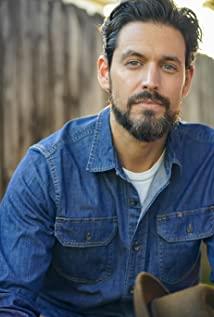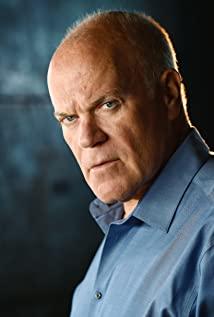The second nonsense, the ancient Greek mythology said that human beings were originally a powerful androgynous heterogeneous, but when the gods felt threatened, they were cut in half and had to run desperately in different directions, so they became more and more each other. Far. In this way, in order to find our partner, we must work hard to learn to love while we are still alive, and then spare no effort to pursue the partner. Otherwise, you will always run lonely in this world of cups.
Nonsense 3: We must allow ourselves to find the light of faith in solitude. There is nothing more powerful than faith. So incompletely speaking, the emergence of religion is based on the separation of the objectification of the ultimate essence of man and himself. Feuerbach said, "Religion is the division of man from himself: he puts a god opposite himself as an existence opposite to himself. God is not what man is, and man is not what God is. Yes. God is an infinite being, and man is a finite being; God is perfect, man is imperfect; God is sacred, man is sinful. God and man are two extremes: God is perfect The positive is the sum of all reality, and the two are the total negative, the sum of all the nihilities.... This opposition and division between God and man—this is the starting point of religion—is man Split from his own essence." (Feuerbach "The Essence of Christianity")
One or Three Questions
Let's go back to the scene where the male number one walked on the window sill of the tall building before dawn. At this time, the male number one is not so determined in his heart, because he wants to prove his love for that married woman (Shana) by jumping off the building at 12 noon, or saving her life, because at this time her husband ——This seemingly pious Christian is holding a pistol angrily pointing at his betraying his wife, while staring attentively at the man who jumped from the building opposite. At the same time, it is worth paying attention to the background at this time. The torch burning behind the tall building and the dense black smoke. The flames and dense smoke finally become dimmed after the weather gradually brightens. At the same time, the picture just appeared on the top of the arrow tower of the church. The huge cross complements each other (maybe this is an initial hint from the director).
Gavin, the man who jumped off the building, as a frustrated hotel owner in his marriage life, is disdainful of Christianity in his heart, because the positivism of cosmological science in the life of a university professor told him that belief in God is absurd because there is no evidence that it exists. In addition to being a little afraid of standing on a tall building now, he also needs to recite the words of the Old Testament psalms to comfort himself-I am not afraid. Surprisingly, it was only after fifteen years of marriage (that is today) that he discovered that his child was not his own community negotiation expert-Hollis came to persuade him to give up the move of jumping off the building. Since it was not 12 o'clock, Gavin, who was not in a hurry to jump off the building, had plenty of time to listen to Hollis and his long-winded jump off the building. So far, the film has gradually unfolded different memories from the dialogue between the two men.
Gavin, met a female employee who is a devout Christian wife-Shana. The two were neighbors, then met on the bus, and finally met in Gavin's office. After Shana became a hotel employee, in order to thank the boss, the couple hosted Gavin and his roommate Chris at home. This is the first important conversation, because this conversation involves important issues related to the theme of the entire movie: homosexuality, religious beliefs, atheism, and of course, Shana’s holy thing—the teddy bear his father gave her when he parted. .
Let's take a look at the main content of this conversation. When the dinner is over, Joe offered to pray for everyone. The following is the content:
Joe said: I hope God can save the evil in his eyes, we all sin.
Gavin retorted: What do you think we are evil in the end?
Joe: God thinks so.
Gavin: I hope God's thunder strikes, don't smash the ones that shouldn't be smashed among us.
Joe wants to treat homosexuality for Chris in the name of religion, which he believes is a sinful disease. The wife stopped. Chris refused, thinking they had different beliefs. Joe said he would come to him if he changed his mind.
This involves a question of original sin, as well as Christian attitude towards homosexuality. This angered Gavin, the emptiness of God, and the blind and authoritarian attitude of his followers. Later, they had two more dialogues, but this time the dialogue completely unfolded the contradiction.
Question 1: Life is sometimes too empty because there is no belief in God VS there is no evidence to prove the existence of God, so God does not exist.
Question 2: Believe in God can be saved and go to heaven, otherwise you will go to hell VS other people who have their own religion or don't have to go to hell?
Problem three: contradictory examples and white lies.
The first two questions involve faith and salvation, and the third question is a concrete example full of paradoxes. Does well-intentioned deception bring temporary warmth or deception that disregards the facts? The last question is the most thought-provoking. The director did not give us abstract preaching, but the most common examples in reality are full of contradictions. Thinking of Sister Xianglin’s question, are there any ghosts? The answer was yes, she would still suffer the punishment of hell after she died; the answer was no, Xianglin’s wife fell into greater grief, and she had no love for life, but death was even more helpless. If it was you, how would you answer? This is a problem that everyone must face head-on.
However, this conversation that sparked a fierce confrontation was only a small beginning. The story is not at the end. Because Shana fell in love with Gavin.
2. Love and be loved
In the next conversation between Gavin and Shana on the bus, we can learn that the teddy bear in Shana’s eyes told her that although her father often beats and scolds herself and her mother, the gifts and tears at the time of parting told her that at least she still forgives her father. right. Later, Shana told Gavin about her experience of taking drugs when she was 18 years old. His drug addiction was so big that he went to prostitution and was sexually abused by clients who like to prostitute in church. When I woke up in the morning to steal something from the altar, I was caught by the worshippers. Joe rescued her, rushed to the hospital, accompanied her, and "saved" her in the name of God. She is grateful for this and thinks that he is the first person who can find good points in her. It can be seen that Shana's "love" is to find a man who can bring him the protection of his father. As for whether this is love, it is not clear what she considered when she got married. Because she didn't find the person who could talk to her in the sky, even though her husband was a seemingly devout Christian.
Gavin's weirdness told her intuitively that it seemed right, and it was interesting. Fettered in the serious and rigid life of her husband, she felt fresh and interesting. Gavin's discussion on the nature of the universe opened the window to Shana's soul. The kiss under the romantic starry sky has a strong symbolic meaning. On the one hand, Shana felt her numbness and stiffness opened up by love; on the other hand, she felt sorry for her husband. At that time, if Shana, lying under the stars, had joy in her heart, it must be complicated.
When two people are trying to have an affair, there is a piece of music that renders the affair journey soft and beautiful. There is a close-up shot of Shana lying on her back on the white bed, her long and tangled hair spreading out. The sound of music does not seem to make people feel particularly happy, but a touch of sadness and longing. I don't know if crying for joy is in line with her state of mind, perhaps at that charming moment of ecstasy, it reminded her a lot of things. The crying and beating family, the father who left home, the drug-addicted self, the pale and monotonous married life, the momentary release of the soul... Maybe forget the past, longing to start a new life with him in the arms of this man, this is her most important thing. Possible mentality. There are a few lyrics that are very charming,
Years float away on the wind
Give me this day I can win
Give your hands to forget
Everything
She needs a pair of strong and gentle hands, don't let her be grateful, don't let her remain pale; don't let her feel nothingness, don't let her live in the past. These hands no longer carry the image of the savior, but the beloved man who lives in her heart. In short, she needs a mature love. Fragrant bed scenes are not uncommon in Hollywood, but this set of shots has played down the sensuality in the beautiful music, which is a good interpretation of an ordinary woman's desire to be loved.
3. Trial and punish in the name of God
Joe discovered the betrayal of his wife keenly with the wisdom God has given to Christians. Outside the kitchen where his wife had an affair with Gavin, he once again restrained himself from killing them with the sacredness and justice bestowed by God. He wanted to punish them in the name of God. So Joe and Gavin started another conversation. Different from the previous two times, this conversation was mainly based on Joe telling his painful past that he was unbearable to look back. Gavin, a handsome guy with a little guilty heart, was surprisingly not as disdainful and angry as the previous two. When they talked about death for faith, although Gavin did not have faith in the Christian sense, he still firmly said that he could sacrifice himself for faith just like Christians.
What Joe asked Gavin to read was "Old Testament • Leviticus" Chapter 20, Section 10, "If you have an affair with another man's wife, you should be put to death." "If a man commits adultery with another man's wife--with the wife of his neighbor--both the adulterer and the adulteress must be put to death") Gavin used the New Testament to refute, based on Chapter 8 of the New Testament • John's Gospel. The scribes and Pharisees brought an adulteress and asked Jesus to punish her. Jesus asked the innocent of them to punish her, but everyone could not be sure that they were innocent, so they all left. Jesus told the women that he would not punish her. Will convict her, let her go and tell her not to commit any more crimes in the future. We will find that this seems to be inconsistent with the Old Testament. If everyone is guilty, then on what basis should we condemn others. Joe's right to punish others with God's sacredness, this somewhat shows us the hegemonic style of surpassing others under the guise of religious authority. If everyone is guilty, the only person to be punished is the omnipotent God. This also allows us to see the shadow of Arendt. As a life individual, in the ultimate sense, no one has the right to deprive others of their lives.
Using religion as a guise to sanction others is first of all standing on the commanding heights of the so-called morality and justice, so it is only natural that there is no psychological burden for doing anything unrighteous. Joe proclaimed that he could sacrifice himself for the faith, because as Jesus said, "If anyone wants to follow me, he should deny himself, take up his cross and follow me every day" (Luke 9:23) "Nothing Those who follow me carrying their own cross cannot be my disciple" (Luke 14:27). These two sentences are said to be a spirit of sacrifice for their own beliefs. This requires a kind of great wisdom and courage, not Tell believers to prove their devotion to Christ by committing suicide. This is an out of context of the spirit of Christ, the root of which is that on the grounds of the omnipotent God, you can do whatever you want. Joe treats himself as a god to fulfill Gavin's punishment. He asked Joe to jump off a tall building at 12 o'clock to prove his sacrifice to his faith. Of course, if he didn't jump, he would shoot his wife to be punished.
4. Jump or not-the eternal salvation
Gavin made a tragic leap at the end, but this is full of irony. Dedication behaviors similar to religious salvation are only similar after all. Perhaps the director wants to tell those self-righteous believers that although the spirit of salvation of non-believers is different from religion, it also has the glory of no less than religion. They also have a firm belief in life that is so persistent that they can give their lives without hesitation. At the end, we saw Joe's unexpected expression. Maybe he didn't expect that this guy who should go to hell jumped up and sacrificed the faith he once held with his life and blood, and in the end he was so unwilling to turn back. We saw that Joe's expression was the most pungent, bloody mockery.
There is a sentence that appears repeatedly in the film, "The Lord is my waiter, and I will not lack. Even though I am walking in the valley of the shadow of death, I am not afraid of any demons, because he is with me, his rod, his The rod comforts me.” “Old Testament • Psalm” 23-1-4 (in bold) It’s interesting that this sentence, whether it is the religious Joe and Hollis, or the non-religious Gavin, has been in their respective situations. Quoted. This is a peculiar aspect. After all, people have a finite side, no matter how good, honest, fraternity, tenacity you are... In the great world, there are always times of confusion, helplessness, emptiness and even despair. When in this limit, what should we do? manage? Let's jump, or...
Another: discussing the nature of religion, there is currently no such ability, but the movie seems to provide us with a lot of valuable suggestions. Regarding Hollis' marital love and his choices, regarding the light of Kabbalah religion of gay Chris, these are all topics worth discussing.
If we follow the title of the movie, we should directly translate it as a window sill, but the window sill does not seem to have much to do with the main event of jumping off the building, so we see another translated title, the man who jumped off the building. But ledge seems to have a marginal meaning, perhaps a metaphor for the marginal situation of modern humans, similar to Sartre's extreme situation. If you are not afraid of strong words, it may be worth studying.
I wanted to discuss the nature of religion before, but when I wrote, I found that I couldn't make it clear, so I left it to other interested friends. As some netizens have said, the plot is indeed somewhat procrastinated, but it is very enlightening.
View more about The Ledge reviews











